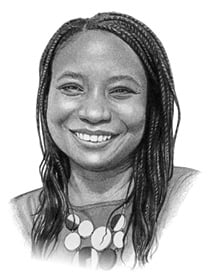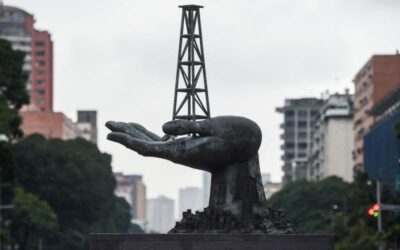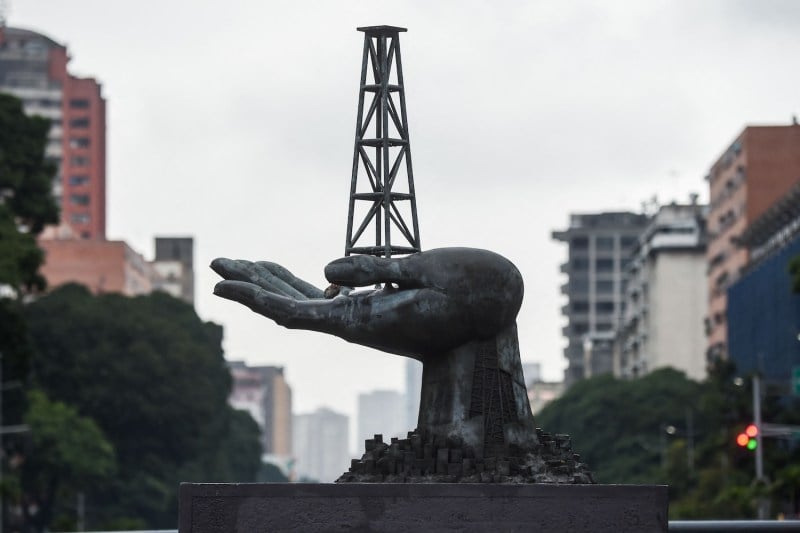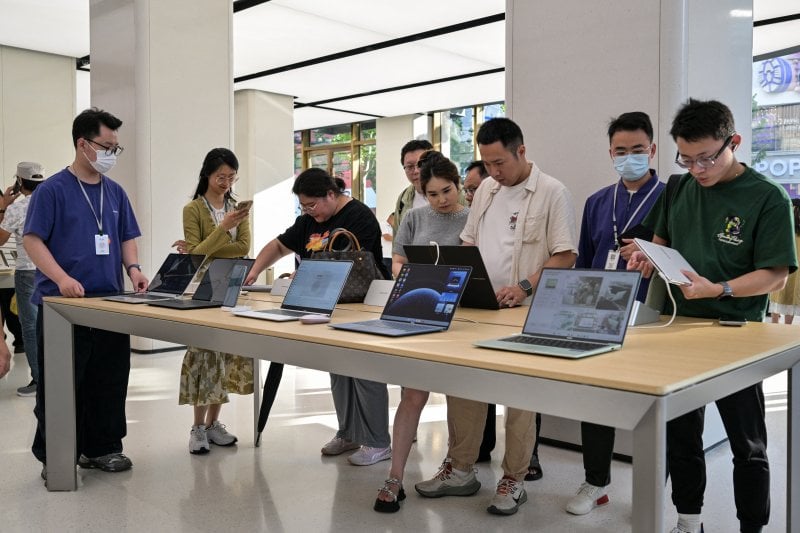Senegal Makes Peace With Separatists

Senegal Makes Peace With Separatists
The Senegalese prime minister has struck a deal with Casamance rebels in an effort to end a conflict that began in 1982.
A separatist belonging to the Movement of Democratic Forces of Casamance (MFDC) stands guard ahead of the release of seven captured Senegalese soldiers at an abandoned settlement, Baipal, Gambia on Feb. 14, 2022. Muhamadou Bittaye/AFP via Getty Images
Welcome to Foreign Policy’s Africa Brief.
The highlights this week: The president of Guinea-Bissau clings to power, Congo accuses Rwanda-backed M23 rebels of faking the capture of FDLR fighters, and Egypt’s fragile peace with Israel faces new obstacles.
Welcome to Foreign Policy’s Africa Brief.
The highlights this week: The president of Guinea-Bissau clings to power, Congo accuses Rwanda-backed M23 rebels of faking the capture of FDLR fighters, and Egypt’s fragile peace with Israel faces new obstacles.
If you would like to receive Africa Brief in your inbox every Wednesday, please sign up here.
A Peace Deal in Senegal
Senegal’s government struck a peace deal last week with separatist rebels in Casamance in a move that could end one of West Africa’s oldest armed conflicts, which began in 1982.
The agreement was signed by Ousmane Sonko—a firebrand opposition leader who became the Senegalese prime minister last year—and members of the Movement of Democratic Forces of Casamance at talks hosted by neighboring Guinea-Bissau.
Until 2024, Sonko was the mayor of Ziguinchor, the main city in the southern region of Casamance, which is home to some 2.1 million people. His appointment as prime minister gave many people renewed hope of resolving the decadeslong armed conflict with separatists in the region, which is partly cut off from the rest of Senegal by Gambia—a narrow sliver of land that divides Senegal’s larger northern region from Casamance—leaving the south economically marginalized.
The 2007 death of the separatist movement’s leader, Augustin Diamacoune Senghor, saw the group split into several factions. The deal announced last week offers amnesty and a path to social reintegration for rebels who surrender their weapons, but security experts have noted that it excludes a hard-line faction led by northern Casamance rebel leader Salif Sadio, whose bases were destroyed by the Senegalese army in 2022.
There’s also likely to be ongoing opposition from another rebel leader, César Atoute Badiate, who was sentenced in absentia to life imprisonment for charges of murder and armed insurrection in June 2022. His whereabouts are unknown.
Past deals have failed to end the fighting in Casamance, including one signed by former President Macky Sall and Badiate in August 2022. A Senegalese court later upheld his sentencing. It is believed that any new amnesty pledges from Sonko will still need to go through the country’s legal system.
Yet residents envision increased investment in Casamance, given that Sonko is from the region. The conflict has left 60,000 people displaced and killed nearly 5,000 people—fueled by low employment, poor education rates, and poverty levels compared to the rest of Senegal. Fighting has been largely financed by illegal rosewood logging, much of which is reportedly exported to China.
Whether this latest peace deal achieves lasting peace will likely depend on further commitments by the Senegalese government toward poverty reduction in Casamance.
The Week Ahead
Friday, March 7: U.S. Secretary of State Marco Rubio hosts Botswana’s new president, Duma Boko.
Wednesday March 12, to Friday, March 14: Finance ministers from the Southern African Development Community meet in Zimbabwe’s capital, Harare.
Thursday, March 13: An EU-South Africa summit is held in Cape Town.
What We’re Watching
Alleged FDLR fighters captured. The Democratic Republic of the Congo has accused Rwanda of dressing prisoners in Congolese army uniforms to pass them off as fighters from the Democratic Forces for the Liberation of Rwanda (FDLR) and justify its invasion of the country.
Rwanda-backed rebels from the March 23 Movement (M23) released a video on Saturday showing its forces handing over 20 alleged FDLR Hutu extremists to Rwanda, which has justified its support of M23 because it claims that Congo’s army is recruiting from the FDLR, a militia that was founded by some of the militants who perpetrated the 1994 Rwandan genocide.
“The Rwandan authorities, who specialize in the art of lies and manipulation, took old FDLR detainees, dressed them in new military fatigues, and passed them off as FDLR fighters newly captured in Goma,” the Congolese government said in a statement, highlighting that most of the men shown in the video appear to be wearing brand new uniforms and shoes.
Congo argues that there is no credible threat from the FDLR and that the invasion is part of Rwanda’s ambition to expand its territory and control Congolese minerals. In an interview with the BBC, the FDLR’s spokesperson, Curé Ngoma, confirmed that one of its senior leaders, Brig. Gen. Ezechiel Gakwerere, was among prisoners captured by M23 but denied that the group had any affiliation with the Congolese army.
Guinea-Bissau’s president clings to power. Guinea-Bissau President Umaro Sissoco Embalo threatened to expel a delegation from the Economic Community of West Africa States over its plans to encourage democratic elections in the country, the bloc said on Sunday.
The opposition says that Embalo’s term should have legally ended on Feb. 27, but the country’s Supreme Court ruled that it ends on Sept. 4, and Embalo has said that presidential elections will not be held until late November. Parliamentary elections scheduled for November 2024 were indefinitely postponed; Embalo now says that they will take place this November as well.
Trump dismantles Power Africa. The Trump administration has ended Power Africa, a program launched under former U.S. President Barack Obama to increase electricity supply in Africa through renewable energy. The initiative operated for more than a decade within the U.S. Agency for International Development.
FP’s Most Read This Week
- Read Trump and Zelensky’s Fiery Oval Office Exchange by Anusha Rathi and Christina Lu
- Trump’s Angry Meeting With Zelensky Prompts Reactions Worldwide by John Haltiwanger
- How Russian Money Helped Save Trump’s Business by Michael Hirsh
What We’re Reading
Israel’s fragile peace with Egypt. Israel has accused Egypt of a threatening military buildup in Sinai, near the border with Israel, as a response to U.S. President Donald Trump’s suggestion that Palestinians in Gaza be relocated to Jordan and Egypt.
In Foreign Policy, Steven A. Cook argues that the 1979 Egypt-Israel peace treaty is no longer a guarantee of regional stability because U.S. diplomacy between the two nations has been absent. “This is a moment when the U.S. national security advisor, secretary of state, and special Middle East envoy should be burning jet fuel to ensure that Egyptian-Israeli ties do not unravel,” he writes.
Congo’s continental war. In Foreign Policy, Jason K. Stearns and Kristof Titeca argue that the ongoing conflict by Rwanda-backed M23 rebels in eastern Congo could lead to a wider regional conflict. U.S. sanctions against Rwandan government minister James Kabarebe are not sufficient, they write. Rwandan President Paul Kagame “said in mid-February that he will ‘spit in the face’ of those who threaten him with sanctions. That does not augur well for the region—an M23 advance could further shake the governments in Uganda and especially Burundi,” the authors write.
Trophy hunting in Botswana. Last April, Botswana’s president offered to send 30,000 elephants to Germany during a row over trophy hunting. Anthony J. Wallace reports in Foreign Policy that Botswana has the world’s largest elephant population, and some of the animals are killing people and stealing farmers’ crops.
Wallace argues that trophy hunting is necessary to reduce human-wildlife conflict in addition to generating “income to fund household dividends, pensions for orphans and older residents, and scholarships.” However, critics have argued that trophy hunting is not a viable economic solution, since it contributed only 0.13 percent to Botswana’s GDP and provided just 1,000 jobs in the country before a five-year trophy hunting ban was put in place from 2014 to 2019.
Nosmot Gbadamosi is a multimedia journalist and the writer of Foreign Policy’s weekly Africa Brief. She has reported on human rights, the environment, and sustainable development from across the African continent. X: @nosmotg
More from Foreign Policy
-

Samuel Huntington holds his hand to his chin while sitting in an office. Samuel Huntington Is Getting His Revenge
The idea of a global “clash of civilizations” wasn’t wrong—it was just premature.
-

U.S. President Donald Trump meets with Ukrainian President Volodymyr Zelensky at the White House on Feb. 28. The Perils of a Reality TV Presidency
The Trump-Zelensky shouting match is a reminder that international diplomacy was never meant to be carried out in front of billions of eyes.
-

A Ukrainian serviceman trains in the woods near the frontline in Ukraine. Three Years On, What’s Next for Europe and Ukraine?
Nine thinkers on the bombshells coming out of Washington.
-

Donald Trump is seen inside a helicopter at night looking down at a cell phone Trump’s New Map
America’s first post-literate president has only geography to fall back on.








Join the Conversation
Commenting on this and other recent articles is just one benefit of a Foreign Policy subscription.
Already a subscriber?
.
Subscribe
Subscribe
View Comments
Join the Conversation
Join the conversation on this and other recent Foreign Policy articles when you subscribe now.
Subscribe
Subscribe
Not your account?
View Comments
Join the Conversation
Please follow our comment guidelines, stay on topic, and be civil, courteous, and respectful of others’ beliefs.
Change your username |
Log out
Change your username:
CANCEL
Confirm your username to get started.
The default username below has been generated using the first name and last initial on your FP subscriber account. Usernames may be updated at any time and must not contain inappropriate or offensive language.